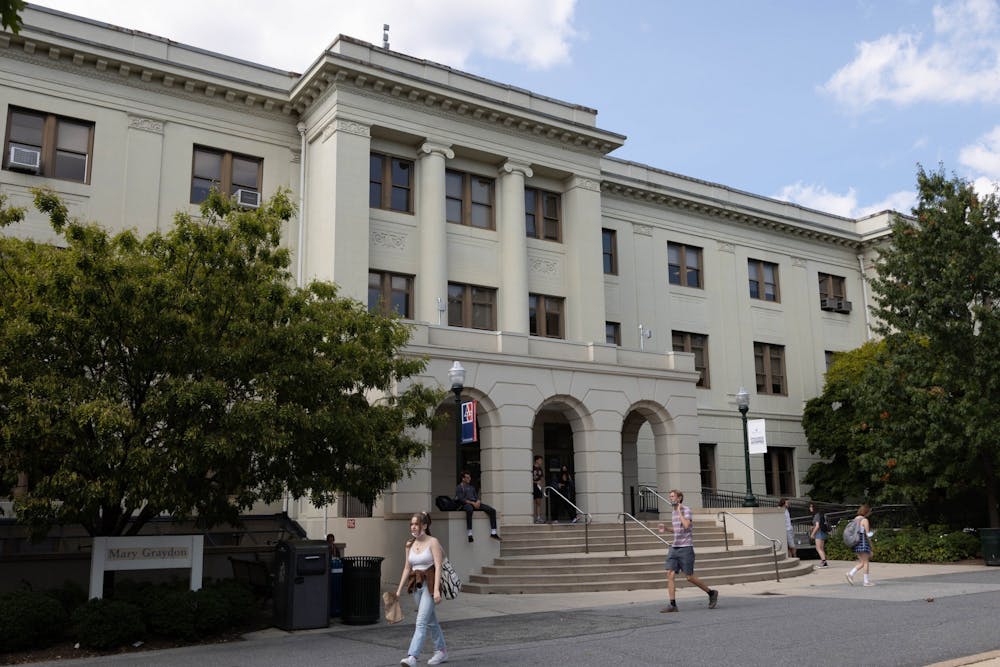A class-action lawsuit against American University for partial spring 2020 tuition refunds will proceed after a district court judge ruled the University is not exempt from consumer protection laws.
The plaintiffs, who originally filed the lawsuit in May 2020, say they paid thousands for in-person learning – an experience cut short in March 2020 due to the coronavirus pandemic. The plaintiffs also argue that AU broke an implied contract by continuing to advertise on-campus experiences during the admissions process, while students paid the same amount for remote learning.
The U.S. District Court for the District of Columbia gave the go-ahead to students’ claims for partial tuition refunds, following the Court of Appeals’ reinstatement of the case in March 2022. A lower court had initially dismissed the case.
“With respect to the breach of contract claim, the court held that ‘Plaintiffs adequately allege the Universities breached an implied-in-fact contract to provide in-person education in exchange for tuition,’” Judge Christopher R. Cooper wrote in the opinion.
AU motioned to dismiss the case by arguing the University is not subject to the D.C. Consumer Protection Procedures Act, since it is a nonprofit that provides “training or credentialing activities.” Cooper ruled AU does not qualify as a nonprofit exempt from CPPA liability, since the D.C. Council would have explicitly included educational activities in the law if the exemption was meant to cover colleges and universities.
“As a matter of common parlance, ‘training’ and ‘credentialing’ bear a business and professional connotation distinct from ‘educating,’” Cooper wrote in the opinion.
CPPA prevents deceptive business practices, such as breach of contract and unjust enrichment. Unjust enrichment occurs when one party confers a benefit onto another without the proper restitution required by law.
The Court of Appeals previously upheld the plaintiffs’ claims that AU breached a contract to provide in-person education in exchange for tuition payments. Additionally, Cooper ruled that fees charged for access to on-campus facilities, like the sports center fee, do not qualify as “membership services” under the CPPA nonprofit liability exemption.
Cooper said in the opinion that designating such fees as membership services would be a “cryptic way” for the D.C. Council to describe the facilities and extracurriculars at universities.
Students are seen as consumers since they are purchasing a service of personal nature, according to Cooper. Since schools like AU are marketed as liberal arts to achieve well-rounded students, Cooper said undergraduate education is still a consumer service protected by CPPA.
“To the extent American suggests, as a general rule, that all college students seek out higher education only for business or professional—rather than personal—purposes,” Cooper wrote in the opinion. “That notion is contradicted by the University’s own stated mission to ‘advance knowledge, foster intellectual curiosity, build community, and empower lives of purpose, service, and leadership.’”
After a lower court dismissed the case in June 2020, finding AU didn’t violate any contractual promises, plaintiffs urged the Court of Appeals to revive the case. The Court of Appeals revived the case in March 2022 and found that the plaintiffs had presumably alleged AU breached the implied-in-fact contracts for in-person learning.
Roy Willey, attorney for the plaintiffs, declined to comment on the matter at this time when contacted by The Eagle.
Since Cooper of the U.S. District Court for the District of Columbia ruled against AU’s motion to dismiss the case, students can proceed with their COVID-19 refund claims in the lawsuit.
“This is an ongoing legal case currently in the discovery phase, so we are unable to comment beyond that,” said Jasmine Pelaez, AU’s internal communications manager.
This article was edited by Abigail Pritchard, Jordan Young and Nina Heller. Copy editing done by Isabelle Kravis, Leta Lattin, Luna Jinks, Sarah Clayton and Stella Guzik.





